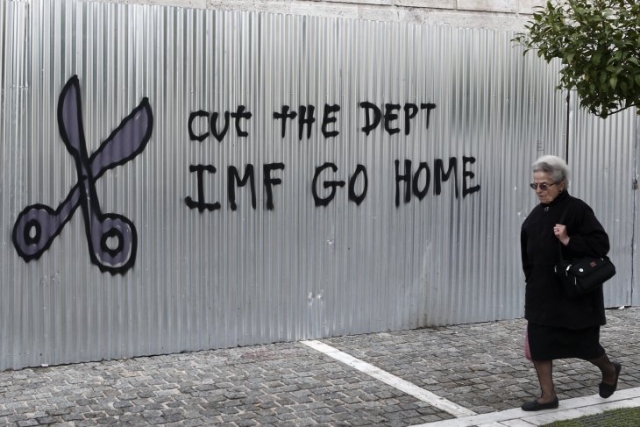Greece Buys Time But Still Needs Bailout
Greece’s ruling Syriza party has walked a tightrope since entering office in February. The avowedly left-wing party is caught between anti-austerity voters on the one hand, and austerity-demanding creditors on the other.
Unwilling to default outright on its debt but finding it politically impossible to implement another harsh austerity package, Syriza has attempted to placate all sides.
This four-month long balancing act is finally coming to a head. Last week the government declared itself unable to pay a EUR 300 million payment due the IMF, the first of four payments totaling EUR 1.5 billion due by 30 June.
Syriza made a last-minute agreement with the IMF allowing it to pay the entire amount in a lump sum at the end of the month. If the sum is not paid by that time, Greece will officially be in default on its government debt obligations.
Bailout Funds Still Needed
Syriza has bought time to make its most pressing debt payments, but state coffers are still empty. Not only does the government lack cash on hand to make the 30 June payment, the end of the month is also the deadline for paying EUR 2.2 billion in private-sector salaries, pensions, and benefit payments.
Government officials have been adamant that domestic obligations trump international ones, with Prime Minister Alexis Tsipras pledging that “there is no possibility or chance that the Greek government will back down on pension and labour issues.”
To avoid falling short on both domestic and international obligations, the government must secure the disbursement of EUR 7.2 billion in bailout funds from the “Troika” – the IMF, European Commission (EC), and European Central Bank.
The funds have been frozen for the past three months because Syriza and the EC have been unable to agree on an economic reform package palatable to both parties. On 4 June the EC presented compromise terms demanding tax hikes, privatisations, and pension cuts; demands that Syriza has refused to implement unless its terms of repayment are renegotiated.
Tone Bitter Between Greece and EC
Greece needs EC approval to receive funds necessary for meeting its debt obligations. However, the relationship between government and EC officials looks sourer than ever. Tsipras called the 4 June proposal, with its demands for immediate austerity measures, “absurd.”
Fiery Finance Minister Ioannis Varoufakis went even further, penning a weekend blog post that declared that “greater austerity is being demanded from an economy that is on its knees, owing to the heftiest dose of austerity any country has ever had to endure in peacetime.”
A particular point of contention is that of Greece’s required primary budget surplus (the amount by which tax revenue exceeds government spending, not including the interest on outstanding debt). The EC had originally demanded that Greece run a primary surplus of 2 percent of GDP in 2015 and 4 percent the year after. It has now relaxed those figures to 1.5 percent and 2 percent.
However, those numbers are still substantially higher than the .8 percent and 1.5 percent proposed by the Greek government. Syriza leaders have expressed concern that creating a larger surplus, which would require still further spending cuts and tax hikes, will tip the country’s economy back into recession.
With 30 June getting nearer and no bailout deal in sight, BBC economics editor Robert Peston commented that “the risk of Greece defaulting on its debts – and leaving the euro – has substantially increased.”
No Stomach for Grexit
Greece is running out of time to avoid default. But even if that occurs, Syriza has no intention of taking the country out of the Eurozone or European Union.
A recent poll found that more than three-quarters of Greeks support staying in the eurozone, and Minister of Economy George Stathakis recently told reporters that “Our government has a mandate to remain in the euro and get a better deal. Greece has to remain within the euro.”
Joseph Larsen












